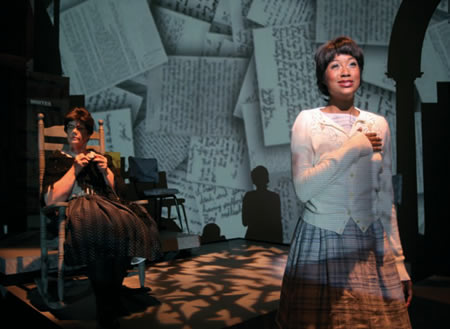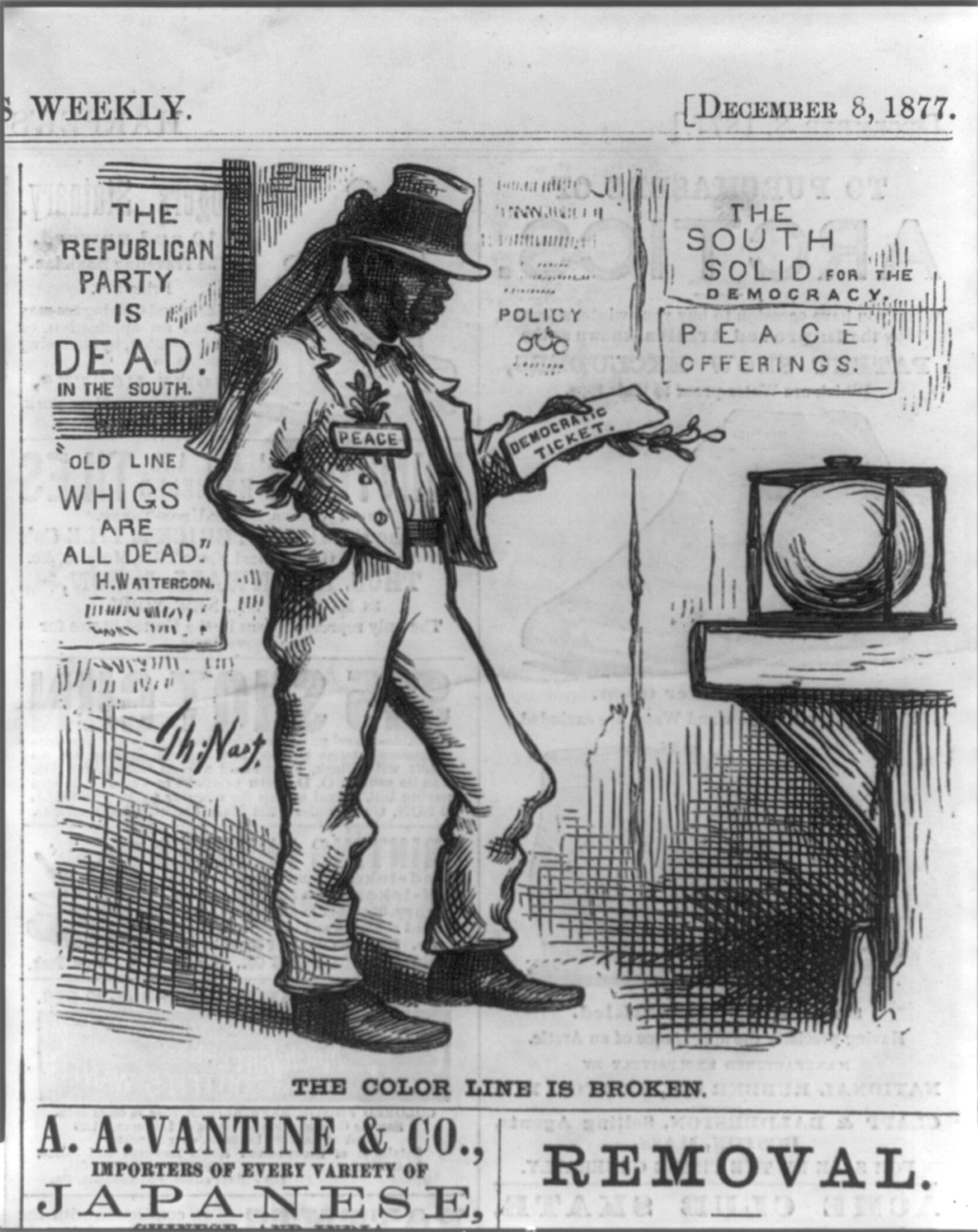|
William Calvin Chase
William Calvin Chase (February 2, 1854 – January 3, 1921) was an American lawyer and Editing, newspaper editor. A native of Washington, D.C., he attended Howard University. As well as gaining admission to the bar, he edited the ''Washington Bee'', a weekly newspaper, from 1882 until his death. Personal life and education Chase was born to free people of color, free African-American parents in Washington, D.C. February 2, 1854. He had five siblings. His Maryland-born father, William H. Chase, an expert blacksmith, was shot and killed in his shop in 1863. Before his father's death, he attended the private school of John F. Cook. Thereafter, young Chase was raised by his Virginia-born mother, Lucinda Seaton. He was forced to leave school and he began to sell newspapers and became known among many newspaper offices in Washington. At eleven he was hired to sell hats for Holley & Brother in Methuen, Massachusetts, where he attended more school. He soon moved back to Washington and ... [...More Info...] [...Related Items...] OR: [Wikipedia] [Google] [Baidu] |
Lawyer
A lawyer is a person who practices law. The role of a lawyer varies greatly across different legal jurisdictions. A lawyer can be classified as an advocate, attorney, barrister, canon lawyer, civil law notary, counsel, counselor, solicitor, legal executive, or public servant — with each role having different functions and privileges. Working as a lawyer generally involves the practical application of abstract legal theories and knowledge to solve specific problems. Some lawyers also work primarily in advancing the interests of the law and legal profession. Terminology Different legal jurisdictions have different requirements in the determination of who is recognized as being a lawyer. As a result, the meaning of the term "lawyer" may vary from place to place. Some jurisdictions have two types of lawyers, barrister and solicitors, while others fuse the two. A barrister (also known as an advocate or counselor in some jurisdictions) is a lawyer who typically specia ... [...More Info...] [...Related Items...] OR: [Wikipedia] [Google] [Baidu] |
Howard University School Of Law
Howard University School of Law (Howard Law or HUSL) is the law school of Howard University, a private, federally chartered historically black research university in Washington, D.C. It is one of the oldest law schools in the country and the oldest historically black law school in the United States. Today, Howard University School of Law confers about 185 Juris Doctor and Master of Law degrees annually to students from the United States and countries in South America, the Caribbean, Africa, and Asia. Howard University School of Law was accredited by the American Bar Association and the Association of American Law Schools in 1931. History Howard University opened its legal department, led by John Mercer Langston, on January 6, 1869. The founders of Howard Law recognized "a great need to train lawyers who would have a strong commitment to helping black Americans secure and protect their newly established rights" during the country's tumultuous Reconstruction era. The first class co ... [...More Info...] [...Related Items...] OR: [Wikipedia] [Google] [Baidu] |
Theodore Roosevelt
Theodore Roosevelt Jr. ( ; October 27, 1858 – January 6, 1919), often referred to as Teddy or by his initials, T. R., was an American politician, statesman, soldier, conservationist, naturalist, historian, and writer who served as the 26th president of the United States from 1901 to 1909. He previously served as the 25th vice president of the United States, vice president under President William McKinley from March to September 1901 and as the 33rd governor of New York from 1899 to 1900. Assuming the presidency after Assassination of William McKinley, McKinley's assassination, Roosevelt emerged as a leader of the History of the Republican Party (United States), Republican Party and became a driving force for United States antitrust law, anti-trust and Progressive Era, Progressive policies. A sickly child with debilitating asthma, he overcame his health problems as he grew by embracing The Strenuous Life, a strenuous lifestyle. Roosevelt integrated his exuberant personalit ... [...More Info...] [...Related Items...] OR: [Wikipedia] [Google] [Baidu] |
Richard W
Richard is a male given name. It originates, via Old French, from Old Frankish and is a compound of the words descending from Proto-Germanic ''*rīk-'' 'ruler, leader, king' and ''*hardu-'' 'strong, brave, hardy', and it therefore means 'strong in rule'. Nicknames include "Richie", "Dick", "Dickon", " Dickie", "Rich", "Rick", "Rico", "Ricky", and more. Richard is a common English, German and French male name. It's also used in many more languages, particularly Germanic, such as Norwegian, Danish, Swedish, Icelandic, and Dutch, as well as other languages including Irish, Scottish, Welsh and Finnish. Richard is cognate with variants of the name in other European languages, such as the Swedish "Rickard", the Catalan "Ricard" and the Italian "Riccardo", among others (see comprehensive variant list below). People named Richard Multiple people with the same name * Richard Andersen (other) * Richard Anderson (other) * Richard Cartwright (other) * Ri ... [...More Info...] [...Related Items...] OR: [Wikipedia] [Google] [Baidu] |
Booker T
Booker T or Booker T. may refer to * Booker T. Washington (1856–1915), African American political leader at the turn of the 20th century ** List of things named after Booker T. Washington, some nicknamed "Booker T." * Booker T. Jones (born 1944), American musician and frontman of Booker T. and the M.G.'s * Booker T (wrestler) (born 1965), ring name of American professional wrestler Booker Huffman Also * Booker T. Bradshaw (1940–2003), American record producer, film and TV actor, and executive * Booker T. Laury (1914–1995), American boogie-woogie and blues pianist * Booker T. Spicely (1909–1944) victim of a racist murder in North Carolina, United States * Booker T. Whatley (1915–2005) agricultural professor at Tuskegee University * Booker T. Washington White (1909–1977), American Delta blues guitarist and singer known as Bukka White * Booker T. Boffin, pseudonym of Thomas Dolby Thomas Morgan Robertson (born 14 October 1958), known by the stage name Thomas Dol ... [...More Info...] [...Related Items...] OR: [Wikipedia] [Google] [Baidu] |
Lynching
Lynching is an extrajudicial killing by a group. It is most often used to characterize informal public executions by a mob in order to punish an alleged transgressor, punish a convicted transgressor, or intimidate people. It can also be an extreme form of informal group social control, and it is often conducted with the display of a public spectacle (often in the form of a hanging) for maximum intimidation. Instances of lynchings and similar mob violence can be found in every society. In the United States, where the word for "lynching" likely originated, lynchings of African Americans became frequent in the South during the period after the Reconstruction era, especially during the nadir of American race relations. Etymology The origins of the word ''lynch'' are obscure, but it likely originated during the American Revolution. The verb comes from the phrase ''Lynch Law'', a term for a punishment without trial. Two Americans during this era are generally credited for coinin ... [...More Info...] [...Related Items...] OR: [Wikipedia] [Google] [Baidu] |
Jim Crow
The Jim Crow laws were state and local laws enforcing racial segregation in the Southern United States. Other areas of the United States were affected by formal and informal policies of segregation as well, but many states outside the South had adopted laws, beginning in the late 19th century, banning discrimination in public accommodations and voting. Southern laws were enacted in the late 19th and early 20th centuries by white Southern Democrat-dominated state legislatures to disenfranchise and remove political and economic gains made by African Americans during the Reconstruction era. Jim Crow laws were enforced until 1965. In practice, Jim Crow laws mandated racial segregation in all public facilities in the states of the former Confederate States of America and in some others, beginning in the 1870s. Jim Crow laws were upheld in 1896 in the case of '' Plessy vs. Ferguson'', in which the Supreme Court laid out its "separate but equal" legal doctrine concerning facil ... [...More Info...] [...Related Items...] OR: [Wikipedia] [Google] [Baidu] |
Reconstruction Era Of The United States
The Reconstruction era was a period in History of the United States, American history following the American Civil War (1861–1865) and lasting until approximately the Compromise of 1877. During Reconstruction, attempts were made to rebuild the country after the bloody Civil War, bring the former Confederate States of America, Confederate states back into the United States, and to redress the political, social, and economic legacies of slavery. During the era, United States Congress, Congress Abolitionism in the United States, abolished slavery, ended the remnants of Secession in the United States, Confederate secession in the Southern United States, South, and passed the Thirteenth Amendment to the United States Constitution, 13th, Fourteenth Amendment to the United States Constitution, 14th, and Fifteenth Amendment to the United States Constitution, 15th Amendments to the Constitution (the Reconstruction Amendments) ostensibly guaranteeing the newly freed slaves (Freedma ... [...More Info...] [...Related Items...] OR: [Wikipedia] [Google] [Baidu] |
Desegregation In The United States
Desegregation is the process of ending the separation of two groups, usually referring to races. Desegregation is typically measured by the index of dissimilarity, allowing researchers to determine whether desegregation efforts are having impact on the settlement patterns of various groups. This is most commonly used in reference to the United States. Desegregation was long a focus of the American civil rights movement, both before and after the Supreme Court of the United States, United States Supreme Court's decision in ''Brown v. Board of Education'', particularly desegregation of the school systems and the military (''see Military history of African Americans''). Racial integration of society was a closely related goal. US military Early history Starting with King Philip's War in the 17th century, Black and White Americans served together in an integrated environment in the Thirteen Colonies. They continued to fight alongside each other in every American war until the war of ... [...More Info...] [...Related Items...] OR: [Wikipedia] [Google] [Baidu] |
Redeemers
The Redeemers were a political coalition in the Southern United States during the Reconstruction era of the United States, Reconstruction Era that followed the American Civil War, Civil War. Redeemers were the Southern wing of the Democratic Party (United States), Democratic Party. They sought to regain their political power and enforce white supremacy. Their policy of Redemption was intended to oust the Radical Republicans, a coalition of Freedman, freedmen, "carpetbaggers", and "scalawags". They generally were led by the White yeomanry and they dominated Southern politics in most areas from the 1870s to 1910. During Reconstruction, the South was under occupation by federal forces, and Southern State governments of the United States, state governments were dominated by Republicans, elected largely by freedmen and allies. Republicans nationally pressed for the granting of political rights to the newly-freed slaves as the key to their becoming full citizens and the votes they woul ... [...More Info...] [...Related Items...] OR: [Wikipedia] [Google] [Baidu] |
The Washington Bee
''The Washington Bee'' was a Washington, D.C.-based American weekly newspaper founded in 1882 and primarily read by African Americans. Throughout almost all of its forty-year history, it was edited by African American lawyer-journalist William Calvin Chase. The newspaper was aligned with the Republican party. It was published, with gaps in 1893 and 1895, until 1922, shortly after editor Chase's death. History 1882–1922 weekly The ''Bee's'' publication history coincided with a two-generation period of American history during which the political roles of African Americans were sharply constrained by the politically reactionary Redeemers. Successful professional-level African Americans, such as editor Chase, faced ceaseless political battles in order to hold on to the limited gains made in previous generations. Chase's editorials at first criticized accommodationist black leaders such as Booker T. Washington, but later made peace with the influential Tuskegee leader. The ''Bee'' ... [...More Info...] [...Related Items...] OR: [Wikipedia] [Google] [Baidu] |








